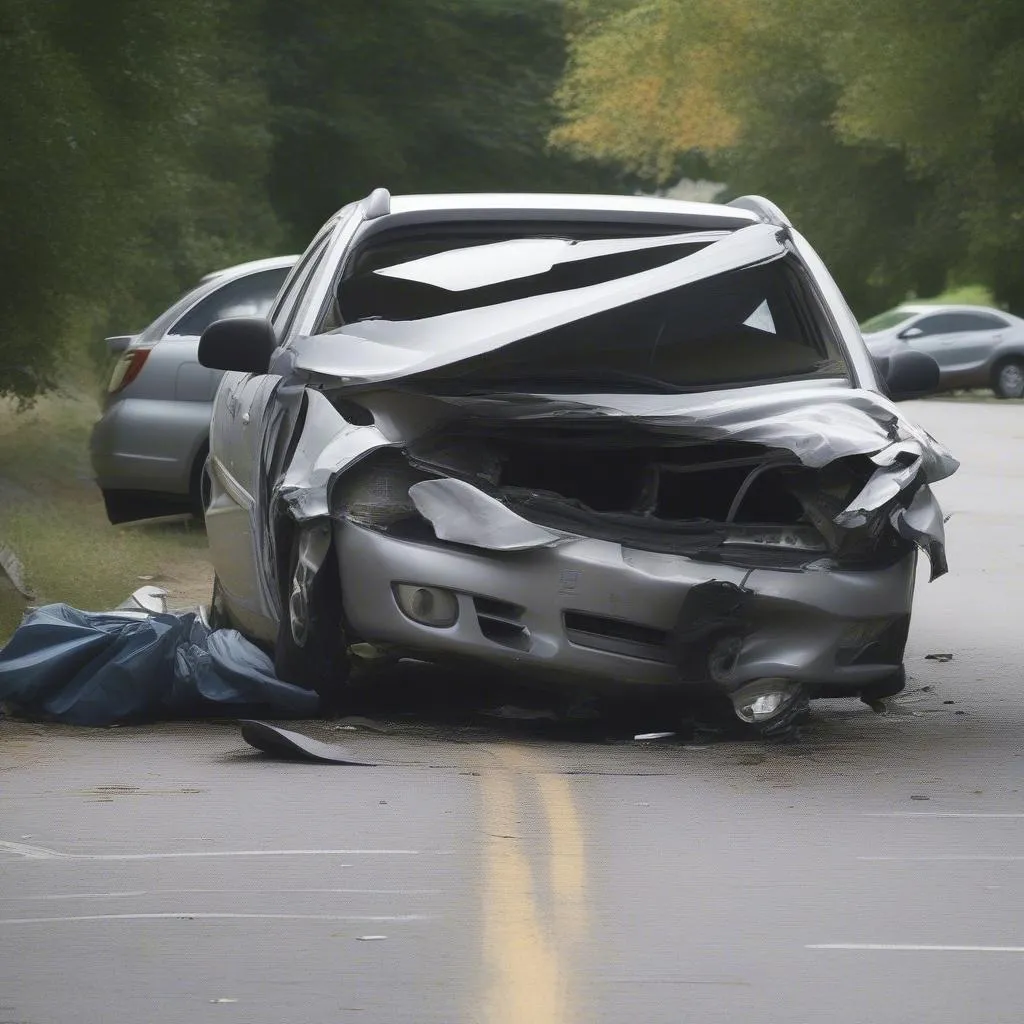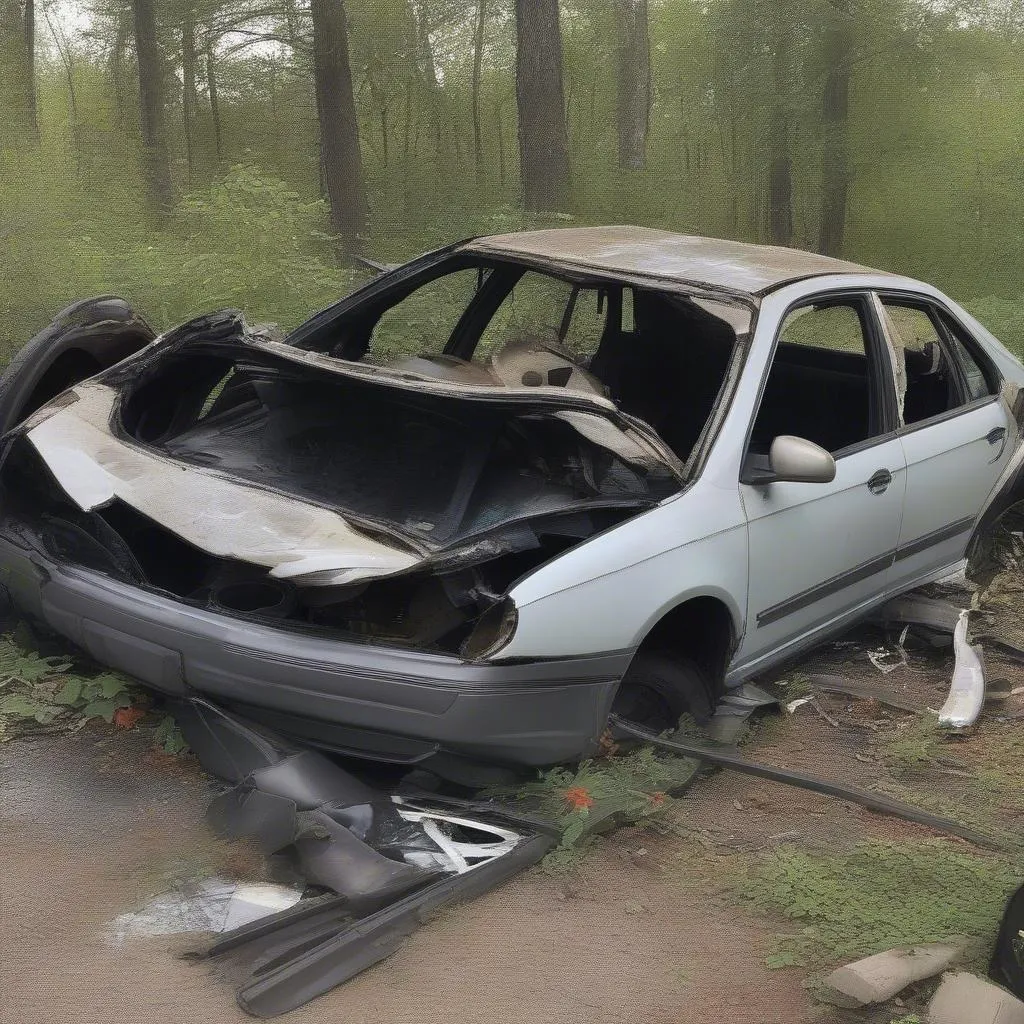Imagine this: you’re driving down a quiet road, minding your own business, when suddenly, a car pulls out in front of you. You slam on the brakes, but it’s too late. The impact is unavoidable. The airbags deploy, you’re shaken but unharmed. The damage to your car, however, is significant. You start wondering, “Is my car totaled?”
The question, “Is A Car Totaled If The Airbag Goes Off?” is a common one. After all, airbags are designed to protect you in a serious accident, and their deployment often indicates substantial damage. However, the answer isn’t a simple yes or no. Whether your car is totaled after an airbag deployment depends on several factors.
Understanding the Question
From a car repair specialist’s perspective, an airbag deployment signifies a major impact, often resulting in extensive damage to the car’s body and frame. The force required to trigger an airbag can cause structural issues, affecting the vehicle’s safety and overall integrity.
From a technical standpoint, an airbag deployment is a sophisticated safety mechanism. It requires a complex network of sensors, wiring, and electronic control units to function. These systems are expensive to repair and often require specialized tools and expertise.
From an economic point of view, the cost of repairing an airbag deployment can be substantial, especially considering the labor involved and the specialized parts needed. The repair costs might exceed the car’s fair market value, making it economically unwise to repair the vehicle.
 Car Damage
Car Damage
Determining if Your Car is Totaled
Several factors influence whether an airbag deployment leads to your car being totaled:
The Severity of the Accident
The severity of the accident is a major factor. If the impact was minor, even with an airbag deployment, your car might be repairable. However, if the impact was significant, causing extensive structural damage and affecting vital systems, the car is more likely to be totaled.
The Age and Value of Your Car
The age and value of your car also play a significant role. If you have an older car with a lower market value, the repair costs might exceed the car’s worth. This makes the car a candidate for being totaled. Conversely, newer cars with higher values are more likely to be repaired, even after an airbag deployment.
The Repair Costs
The cost of repairing the airbag deployment and other damage caused by the accident is crucial. If the repair costs exceed the car’s fair market value, an insurance company will likely declare the car a total loss.
Your Insurance Policy
Your insurance policy details the conditions for a total loss. It specifies the thresholds for repair costs, the car’s market value, and other factors that determine whether the car is totaled.
Common Scenarios and Questions
Q: What if the airbag deployment is the only damage?
A: While unlikely, if the airbag deployment is the only damage, your car might still be repairable. However, keep in mind that repairing airbags requires specialized knowledge and tools. It is crucial to consult with a qualified mechanic or your insurance company to assess the situation.
Q: Can I still drive my car after an airbag deployment?
A: It is generally not advisable to drive a car after an airbag deployment. The deployment indicates a significant impact that could have compromised the car’s structural integrity and safety systems. It’s best to contact your insurance company and follow their instructions.
Q: What happens to my car if it’s totaled?
A: If your car is totaled, your insurance company will likely provide you with a payout based on the car’s fair market value. You may have the option to buy back the car from the insurance company if you wish to keep it for parts or try to repair it yourself.
 Car Totaled
Car Totaled
Seeking Professional Advice
If you’ve been in an accident and your airbags have deployed, it’s essential to seek professional advice from a qualified mechanic or your insurance company. They can assess the damage, determine the repair costs, and help you understand your options.
Remember: An airbag deployment is a serious matter, and it’s crucial to prioritize your safety and follow the appropriate procedures.
